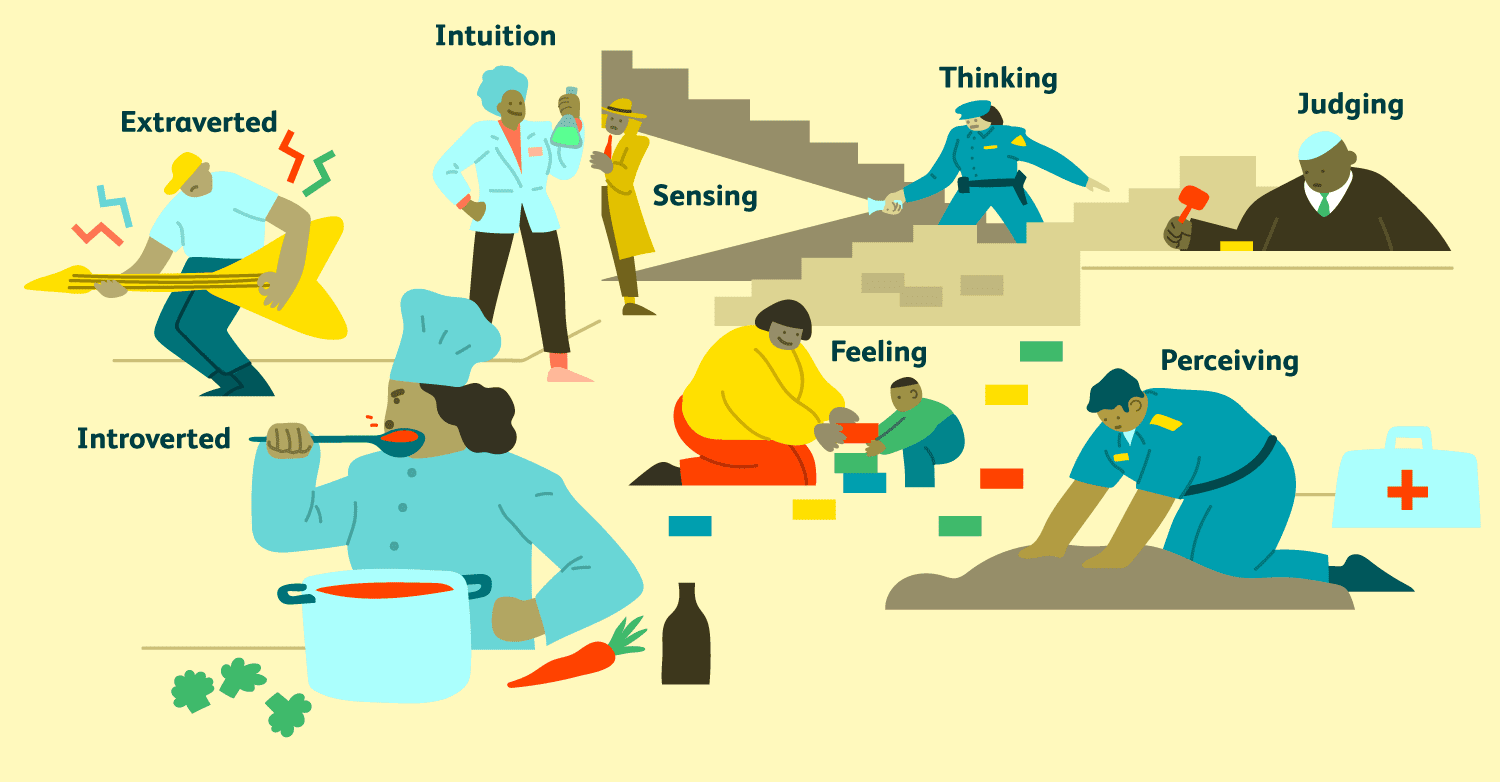
FAQ About Myers-Briggs Personality Type Test

Are certain personality types more prone to stress or anxiety?
While certain personality types may exhibit tendencies or preferences that can influence how they respond to stress or anxiety, it's important to remember that stress and anxiety are complex and multifaceted experiences that can be influenced by various factors beyond personality.
That being said, here are some general observations about how different personality types may approach or handle stress:
- Perfectionistic Types (e.g., ISTJ, INTJ): Individuals who have a preference for structure and order may be more susceptible to stress when things do not go according to plan or when they feel they are not meeting their own high standards.
- High-Achieving Types (e.g., ENTJ, ESTJ): Personality types that prioritize achievement and success may experience stress due to the pressure they place on themselves to meet their goals and fulfill their responsibilities.
- High Sensitivity Types (e.g., INFJ, ISFP): Individuals who are more attuned to emotions and have a strong sense of empathy may be more susceptible to stress in situations where they perceive interpersonal conflict or when they feel overwhelmed by external stimuli.
- Change-Resistant Types (e.g., ISFJ, ISTP): People who prefer stability and familiarity may experience stress when faced with unexpected changes or disruptions to their routines.
- Overthinking Types (e.g., INTP, ENTP): Those who have a preference for introverted thinking and intuition may be prone to overanalyzing situations and ruminating on potential negative outcomes, leading to heightened levels of stress or anxiety.
It's important to note that these observations are general tendencies and do not apply to every individual of a particular type. Each person's experience of stress and anxiety is unique, and individuals within the same personality type may respond differently to stressful situations based on their personal traits, coping mechanisms, and life experiences.
Moreover, it's essential to approach stress and anxiety holistically, considering factors such as individual resilience, support systems, coping strategies, and external circumstances that can influence stress levels. Seeking professional help from mental health professionals is advisable for those experiencing persistent or debilitating stress or anxiety.
